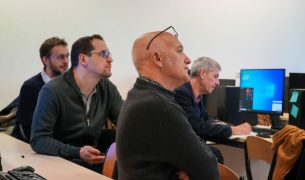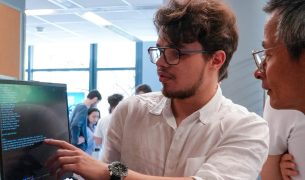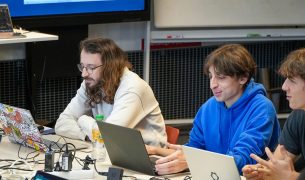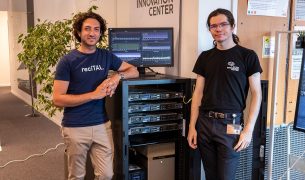
At ESILV, the Research Track engages students and faculty in interdisciplinary research, applied studies, and academic dissemination across engineering, data science, cybersecurity, finance, AI, and more. The variety and depth of topics addressed within the Research Track reflect the richness of academic inquiry at ESILV. This program is a distinctive element of the school’s educational […]

For many, the word “engineering” springs to mind images of extravagant skyscrapers, fancy technology, or complex math problems. But engineering is way more broad and even peculiar at times. Some engineers design record-breaking roller coasters, while others work on shaping the perfect texture of chocolate Some jobs don’t just seem like careers; they seem like […]

Between 2022 and 2024, De Vinci Higher Education has been part of the SUCCESS project in partnership with the Technical University of Dresden, the Polytechnic University of Cartagena, and the Riga Technical University. To extend the impact of this initiative, we are making available the “Public Speaking Handbook for Engineers,” a practical guide designed […]

When most people think of engineers, the image of someone at a desk, crunching numbers or designing on a computer often comes to mind. But the world of engineering is as diverse as it is exciting. For those who dread being tied to a chair all day, dynamic roles take engineers into the field, onto […]

As technology continues to evolve, the engineering landscape is transforming. From artificial intelligence to sustainable innovation, emerging fields are reshaping industries and creating exciting new opportunities for the engineers of tomorrow. For students considering their future career paths, choosing the right specialization is their most significant choice yet.

How often have you read an article that started with the same statement about an interconnected world? Well, this one’s no different, but with a twist. Engineering students increasingly look beyond their home countries to better understand their field. A global perspective is not just a luxury; it’s essential.

The chasm between traditional engineering education and the industry’s dynamic needs has been a formidable challenge. Bridging this gap is no longer just beneficial but essential for preparing a new generation of engineers who are equipped to tackle the complex problems of today and tomorrow.

In the evolving landscape of engineering education, interdisciplinary studies emerge as vital bridges, connecting the rigor of engineering principles with the vast expanse of other disciplines such as business, design, and environmental science. This fusion of knowledge enriches aspiring engineers’ educational journey and equips them with the versatile toolkit needed to tackle complex, real-world problems.
